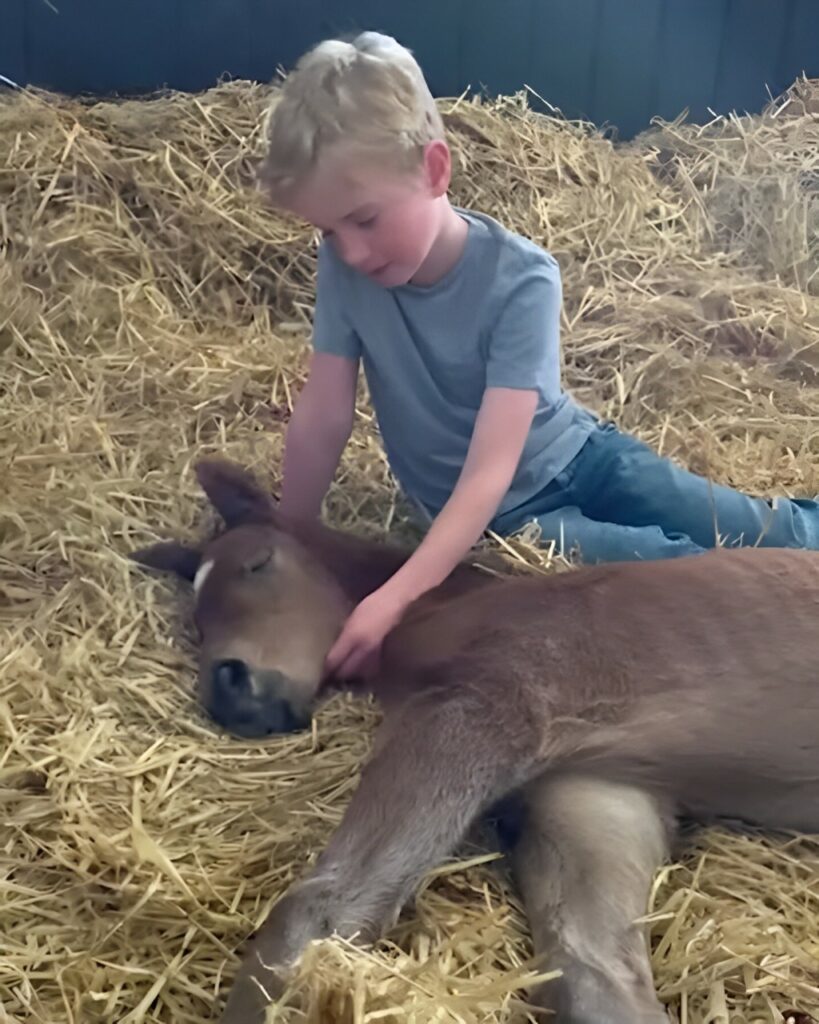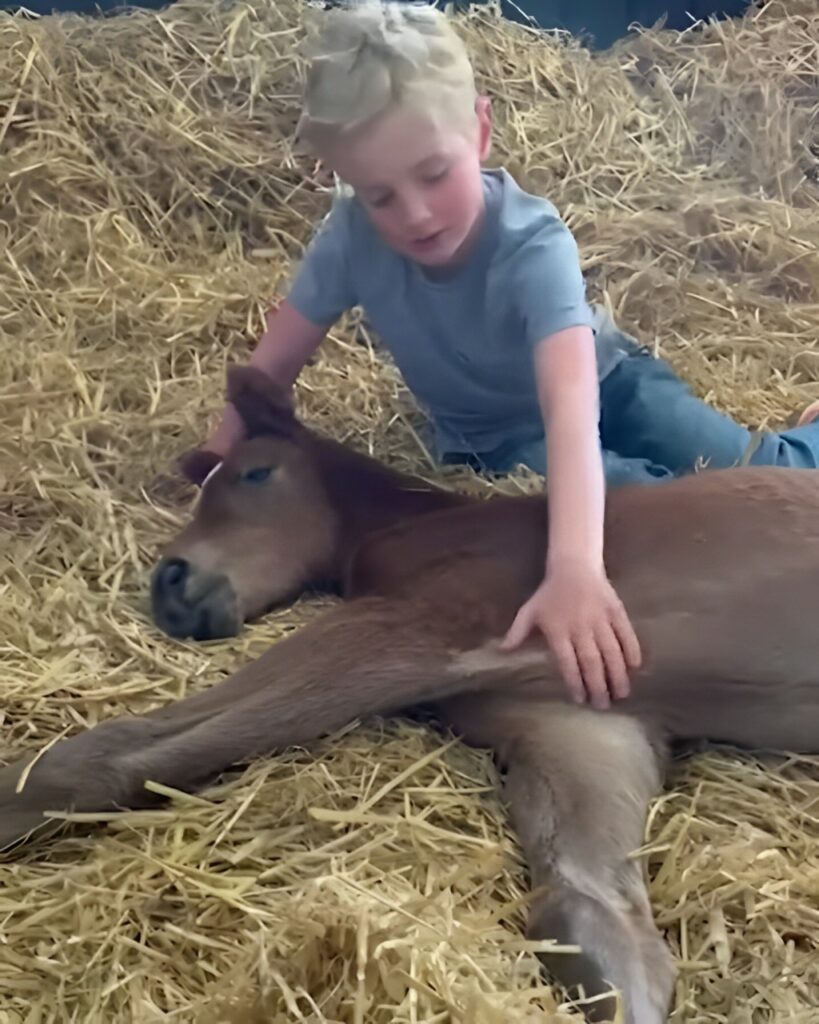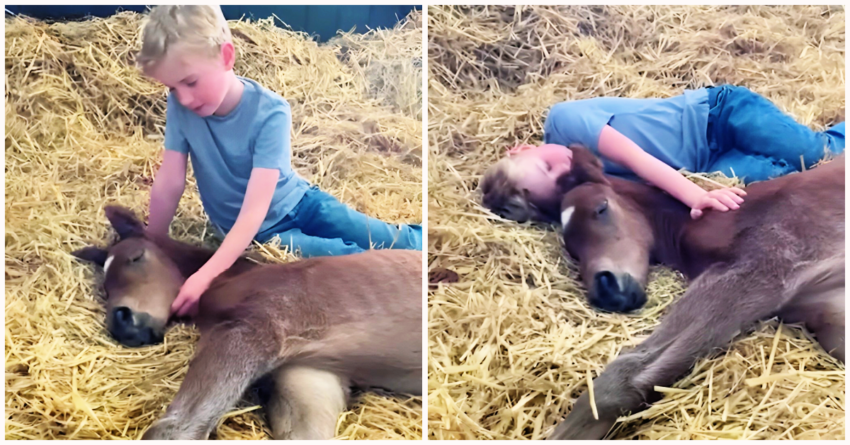Friendships can start early and last a lifetime, just like the developing bond between a 12-hour-old foal and a young child shown in this heartwarming scene. The child, full of sincere love and care, has already formed a close connection with the little horse. This interaction isn’t just adorable; it’s the beginning of a long-lasting friendship. It is heartening to see such genuine affection from a young age, and this little horse is indeed fortunate to have a friend who shows such tender care right from the start.

Foaling season brings a flurry of excitement to breeding stables, where the arrival of each new foal is a celebrated event. During this time, facilities often witness the birth of multiple foals, adding joy and a bit of chaos to the atmosphere. Children and adults alike find delight in welcoming these new members to the equine family. The presence of newborns not only energizes the stable environment but also strengthens the bond between the animals and their human caretakers, enhancing the communal spirit that defines life in a stable.

The gestation period for a foal is about 11 months, but this can vary, with some foals arriving several weeks early or up to four weeks late. Most breeders aim to time these births for early spring, allowing the foal to take full advantage of the summer months for growth and development. This strategic timing is crucial for the foal’s early life stages, as warmer weather and longer days provide ideal conditions for a newborn to thrive through exercise and exploration in a safe environment.

After birth, a foal’s first few hours are critical. They are expected to stand, walk, and even trot shortly after coming into the world. Nursing within two hours of birth is ideal for their health; delays might necessitate a call to the veterinarian. Interestingly, filly foals are often observed to be quicker on their feet compared to colts. However, all foals are generally capable of galloping after just 24 hours—a playful sight for any child to witness. Moreover, owners must be vigilant about the foal’s health, as they are born without a developed immune system, making them susceptible to infections. Ensuring the umbilical stump is disinfected and monitoring for signs of illness are essential precautions during this vulnerable period.
